¡Viva la diferencia! The colorful future of religious life
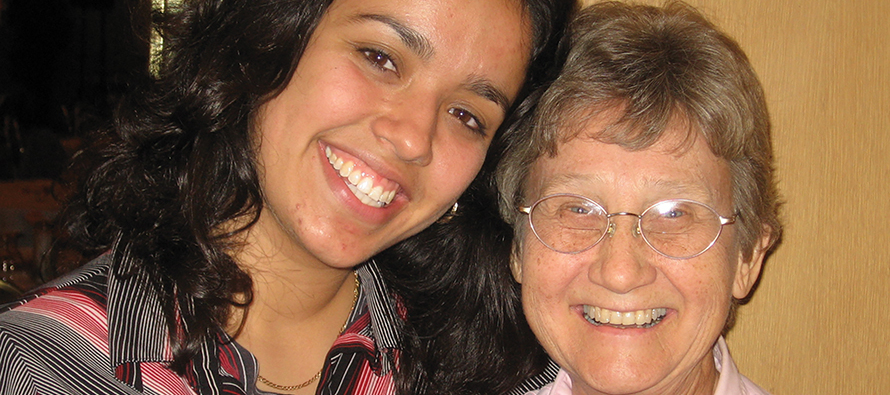
Image: Differences in age and ethnicity can lead to both culture-clashes and valuable learning experiences.
The men and women entering religious life today are usually much younger than most of the members of their community and much more culturally diverse. For religious communities that have been fairly homogeneous throughout their history, this fact can be cause for both celebration and consternation. Here is some advice from young religious on how to incorporate cultural diversity with little pain and much gain.
What challenges do communities face with the cultural diversity of newer members?
Brother Roger Lopez, O.F.M.
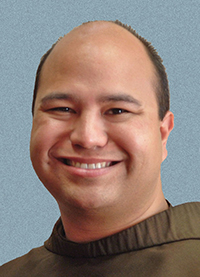
The biggest challenge is to not squelch the culture of new members—their religious practices or devotions, food, or customs. It’s easy for the majority to become the standard for everyone. We need to strive for communities where everyone’s culture is allowed to blossom and ideally to become integrated into the whole.
Have you ever experienced stumbling blocks because of cultural differences?
Sister Christa Parra, I.B.V.M.
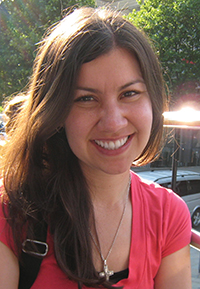
When I took first vows, I was planning the Mass with my formation director. When we discussed the invitation list, I learned that only immediate family could attend. To me this meant that my parents, grandparents, brothers and their significant others, godparents, uncles, aunts, and cousins could come. In our culture [Mexican American], we celebrate every life event together. To my director, immediate family meant only my parents and brothers could come. After we discussed it further, she presented this discussion to the community leaders, and they agreed to allow my grandparents and an uncle to attend. This meant so much to me.
Sister Xiomara Méndez-Hernández, O.P.
I have felt embraced by my community, especially the members who have ministered in or are from the Dominican Republic. I have come to appreciate the great organization and preparation for Mass, the quietness, the beautiful singing, the politeness, etc. However, at liturgies I miss the close contact, hugs, laughter, joyful music, movement, and clapping. I have difficulty appreciating organ music. In my country [Dominican Republic] the organ is played at high Mass in the cathedral and many times at funerals. The organ brings to my mind darkness and sadness.
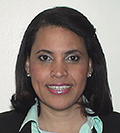
Also during novitiate [a period of study and ministry during the entrance process], I was always referring to my own experiences in the Dominican Republic because that was my background. At one point I was told by a novice director from another community: “You are always talking about or referring to your country. You are the one who came to this country, and you are the one who needs to adapt to this culture, not us to yours.”
I was surprised and hurt because the multi-community novitiate was supposed to foster multicultural diversity. I spoke to my community prioress about it, and she was very supportive. I believe there is a need for continued education on racial and cultural diversity for the future of religious life in the United States since it is a country with so many cultures and races.
What helped you integrate into your community?
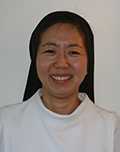
Sister Mary Yun, O.P.
The community also has integrated the sisters’ various cultures into liturgies. For instance, when I received the habit and when I made first vows, parts of the Mass were in Korean, and the food for the reception was Korean barbecue.One thing my community does well is encourage creativity in new members of different cultures. I learned from a Vietnamese sister how to do modular origami. Shortly after that, I took up origami as my hobby and was making many ornaments. My congregation (Dominican Sisters of Mission San Jose in Fremont, California) has encouraged me to have my own booth at our motherhouse’s annual holiday boutique.
Sister Christa Parra, I.B.V.M.
I’m the youngest and a minority in a predominately Caucasian order. However, these factors have not been a barrier to the wonderful relationships I have built with the sisters in our community. The sisters have been very supportive and kind in doing all they can to make me feel at home.
Of course, embracing my family means embracing who we are culturally. One beautiful example of how the sisters have embraced my culture is that when I turned 30, they hosted a birthday celebration for me called “Quinceañera Times Two.” The quinceañera is a special celebration in our culture for a young woman who is turning 15, so it was clever to multiply it by two for my 30th. We enjoyed great Mexican food, Spanish music, and dancing in our community room at the Provincial House. My mom and brother joined us from Arizona, which made it even more awesome.

Brother Carlos Medina, O.S.A.
What has been most helpful to me are opportunities my province has given me to spend time with Augustinians from Latin America. My province has been generous in sending me to Augustinian conferences in Latin America, and I also had the opportunity to live in community in Latin America one summer. We have also had Augustinians from Latin America come and spend time in our province in California. This kind of contact helps me better understand how to be both a Columbian American and a member of the Augustinians.
What tends to create more culture-clash: differences in age or differences in ethnicity?
Sister Mary Yun, O.P.
I believe age differences create more frustration than cultural differences. I experience the “digital divide” at times in the community, but at the same time this gives me another opportunity to interact with my sisters. It is great that some of our older sisters are willing to try different forms of communication, such as texting.
Brother Carlos Medina, O.S.A.
I have a hard time deciding which poses a greater challenge for group interaction. Perhaps the difficulty is that my experience of age difference often occurs alongside ethnic difference since all the religious I know over age 60 are also white.
Generally I find interacting with a group of religious from other ethnic minorities is easier for me than interacting with a group of religious in which I am the only one from an ethnic minority.
Age gaps do present challenges for group interaction. Interacting in a group where I am the youngest and the rest are much older often means not knowing the references made in conversation because we don’t have a common history. Much like with ethnic differences, one-on-one interactions are different, and I generally don’t find it challenging to interact one-on-one with an older friar.
Sister Xiomara Méndez-Hernández, O.P.
For me what creates more culture clash is the difference in ethnicity. I have not experienced major culture clash with the majority of our sisters, and many of them are much older than me. I do not know if the elder sisters are more open to other cultures or if they are more tolerant because of their wisdom, politeness, or missionary experience.
Sister Christa Parra, I.B.V.M.
I think more than the cultural differences, the age gap is more evident on a daily basis. I have always felt free to be myself, and my sisters encourage that. The way I dress, communicate, dance, think, and listen to music are obvious differences that reflect my generation. Even though sometimes the sisters don’t understand why I like certain things, they are kind and patient with me. They are forming me and teaching me through their lives (and even their deaths) about grace, perseverance, and love.
Related articles: vocationnetwork.org, Five reasons we need religious communities, Vision 2007; Call me sister, Vision 2011.
See also the NRVC Report on Incorporating Cultural Diversity in Religious Life (CARA, 2014).
Tags
Related
- Religious making a difference
- Religious seekers in legal limbo
- Mercy meets at the border
- Religious life: The call continues
- Vocation Basics: Essentials for the vocation journey
- Community life: A place to call home
- A charism encourages a caring ministry
- The four main types of religious life
- Our newest religious possess an age-old Christian virtue: hope
- Celibacy steeped in a whole lot of love Read More
Most Viewed
- Find your spirituality type quiz
- FAQs: Frequently asked questions about vocations
- Celibacy quiz: Can you live a celibate life?
- Resources for older discerners or those with physical and developmental differences
- About Vocation Network and VISION Guide


